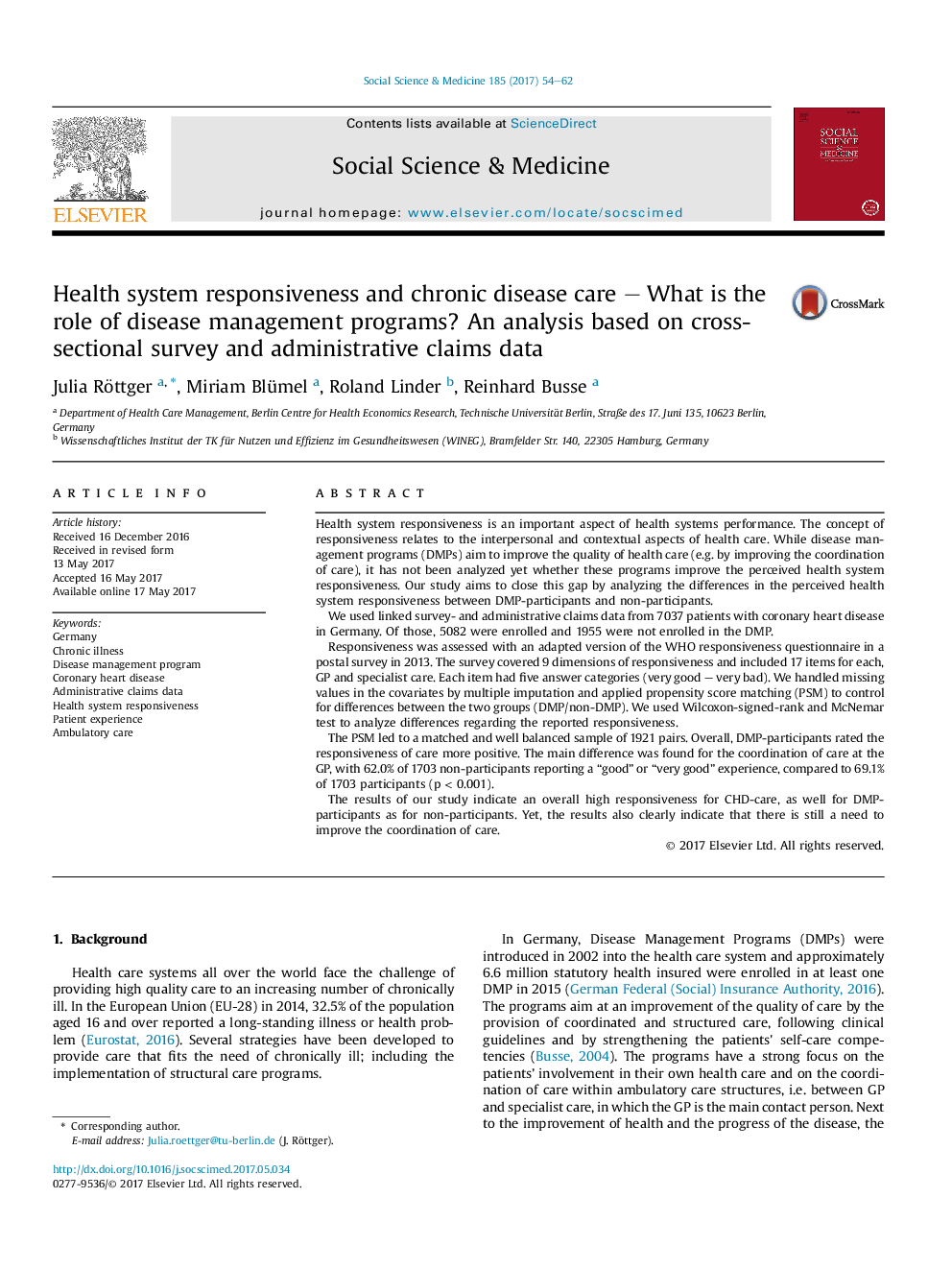| کد مقاله | کد نشریه | سال انتشار | مقاله انگلیسی | نسخه تمام متن |
|---|---|---|---|---|
| 5046403 | 1475984 | 2017 | 9 صفحه PDF | دانلود رایگان |
- We assess the health system responsiveness of ambulatory chronic disease care.
- We analyze differences in care between disease management programs and routine care.
- We use survey data linked on individual level to administrative claims data.
- Results indicate an overall high responsiveness of ambulatory chronic disease care.
- Participants of disease management programs report a higher responsiveness of care.
Health system responsiveness is an important aspect of health systems performance. The concept of responsiveness relates to the interpersonal and contextual aspects of health care. While disease management programs (DMPs) aim to improve the quality of health care (e.g. by improving the coordination of care), it has not been analyzed yet whether these programs improve the perceived health system responsiveness. Our study aims to close this gap by analyzing the differences in the perceived health system responsiveness between DMP-participants and non-participants.We used linked survey- and administrative claims data from 7037 patients with coronary heart disease in Germany. Of those, 5082 were enrolled and 1955 were not enrolled in the DMP.Responsiveness was assessed with an adapted version of the WHO responsiveness questionnaire in a postal survey in 2013. The survey covered 9 dimensions of responsiveness and included 17 items for each, GP and specialist care. Each item had five answer categories (very good - very bad). We handled missing values in the covariates by multiple imputation and applied propensity score matching (PSM) to control for differences between the two groups (DMP/non-DMP). We used Wilcoxon-signed-rank and McNemar test to analyze differences regarding the reported responsiveness.The PSM led to a matched and well balanced sample of 1921 pairs. Overall, DMP-participants rated the responsiveness of care more positive. The main difference was found for the coordination of care at the GP, with 62.0% of 1703 non-participants reporting a “good” or “very good” experience, compared to 69.1% of 1703 participants (p < 0.001).The results of our study indicate an overall high responsiveness for CHD-care, as well for DMP-participants as for non-participants. Yet, the results also clearly indicate that there is still a need to improve the coordination of care.
Journal: Social Science & Medicine - Volume 185, July 2017, Pages 54-62
